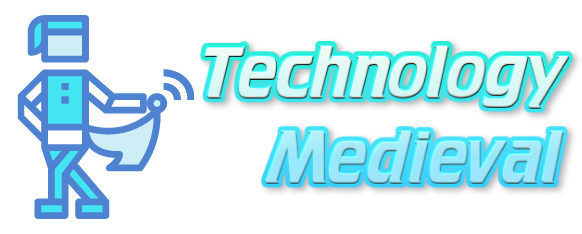Enhancing Full Stack Applications with GraphQL and Apollo Server
In today’s fast-paced tech environment, full stack developers are constantly looking for ways to optimize their applications and make them more efficient. Two of the most powerful tools to emerge in recent years are GraphQL and Apollo Server. These technologies have transformed how data is fetched and handled, enabling developers to build applications that are more flexible, scalable, and easier to maintain. Whether you’re just beginning your career or looking to boost your skills through a full stack developer course in Bangalore, understanding these tools is crucial for modern web development.
In this blog post, we’ll explore how GraphQL and Apollo Server work, why they’re increasingly popular in full stack development, and how they can enhance your projects. We’ll also touch on the importance of continuous learning for developers in an ever-evolving field.
What is GraphQL?
GraphQL is an open-source query language for APIs that was developed by Facebook in 2015. It offers a more efficient, adaptable, and robust option compared to the traditional REST API architecture. In REST, developers usually need to set up multiple endpoints to retrieve different sets of data. While this has been the standard approach for many years, it has its limitations. For instance, REST often returns either too much or too little data, requiring additional API calls or manual filtering on the client side.
GraphQL addresses these problems by allowing developers to request exactly the data they need, all through a single endpoint. This means no more overfetching (retrieving unnecessary data) or underfetching (not getting enough data), which can lead to inefficient applications. For full stack developers, this ability to fine-tune data requests can significantly improve application performance, especially when dealing with complex, data-heavy applications.
Why GraphQL is Better Than REST
One of the key reasons full stack developers are gravitating toward GraphQL is the flexibility it offers compared to traditional REST APIs. Here’s how it differs:
- Single Endpoint: Instead of creating multiple endpoints for different data types, GraphQL uses a single endpoint able to handle a diverse array of data requests. This simplifies the API structure and reduces the complexity of managing multiple endpoints.
- Exact Data Retrieval: In REST, developers might need to make several requests to get all the data they need, potentially retrieving too much information. With GraphQL, you can specify precisely what data you want, minimizing both the amount of data transferred and the number of requests.
- Improved Client-Server Communication: GraphQL improves communication between the front-end and back-end by allowing clients (typically the front-end part of an application) to specify exactly what data they need. This leads to faster, more efficient queries, enhancing the user experience.
If you’re looking to enhance your full stack development skills, enrolling in full stack developer classes or a full stack developer course in Bangalore can help you master GraphQL’s unique features and understand how to implement them in real-world projects.
What is Apollo Server?
While GraphQL is the language for querying APIs, Apollo Server is a tool that simplifies the process of setting up and running a GraphQL server. As an open-source GraphQL server, Apollo integrates smoothly with any backend, including databases and microservices, and makes it easier to implement and manage GraphQL in your full stack applications.
One of the main benefits of Apollo Server is how it streamlines the development process. It handles much of the heavy lifting behind the scenes, such as managing connections to different data sources, handling errors, and optimizing query performance. This leaves full stack developers more time to concentrate on developing features instead of being concerned about server configuration and data management.
How Apollo Server Improves Full Stack Development
Here are a few key advantages of using Apollo Server in your full stack development projects:
- Simplified Setup: Apollo Server is designed to make it easy to integrate GraphQL into any existing backend. Whether you’re building an app from scratch or adding GraphQL to an existing system, Apollo Server handles much of the configuration for you, allowing you to get up and running quickly.
- Better Performance: Apollo Server includes features like caching and batching, which can significantly improve the performance of your application. By reducing the number of requests sent to the server and optimizing how data is fetched, it helps applications run more efficiently, especially as they scale.
- Powerful Error Handling: Apollo Server makes it easier to handle and debug errors, providing clear error messages and built-in tools for managing potential issues. This simplifies the development process and improves overall application stability.
- Real-Time Updates: Apollo Server supports subscriptions, enabling real-time communication between the client and the server. This is especially beneficial for applications that need live data updates, such as chat apps or live dashboards.
How Full Stack Developers Can Leverage GraphQL and Apollo Server
As a full stack developer, learning how to integrate GraphQL and Apollo Server into your applications can unlock a broad range of opportunities. Here’s how these technologies can enhance your work:
- Build Faster, More Responsive Apps: By enabling precise data fetching, GraphQL and Apollo Server allow developers to create applications that load faster and perform better. This is particularly advantageous for mobile applications or any app where performance is a priority.
- Simplify Data Management: Managing complex data relationships is one of the biggest challenges in full stack development. GraphQL makes it easier to handle these relationships, while Apollo Server takes care of optimizing performance and managing data retrieval behind the scenes.
- Improve Collaboration Between Front End and Back End Teams: Since GraphQL allows the front-end to specify exactly what data it needs, it reduces friction between front-end and back-end teams. This results in quicker development cycles and fewer misunderstandings.
- Future-Proof Your Applications: As web technologies continue to evolve, tools like GraphQL and Apollo Server are becoming standard in the industry. Learning these technologies can future-proof your skill set and make you more competitive in the job market.
Continuous Learning is Key
As full stack development evolves, so do the tools and technologies we use. GraphQL and Apollo Server represent the cutting edge of web development, but staying up-to-date with these and other tools is essential for long-term success. Enrolling in full stack developer classes or a full stack developer course in Bangalore can provide you with the hands-on experience you need to master these technologies and stay ahead in your career.
By consistently learning and adjusting to emerging technologies, you can ensure your skills stay up to date in a rapidly changing industry. Full stack developers who invest in ongoing education are better equipped to build modern, high-performing applications that meet today’s demands.
Conclusion
GraphQL and Apollo Server are revolutionizing the way full stack developers build applications. With GraphQL’s efficient data querying and Apollo Server’s simplified server management, developers can create faster, more responsive, and more scalable apps. Whether you’re a beginner or an experienced developer, mastering these technologies can significantly enhance your skill set.
If you’re looking to take your career to the next level, consider enrolling in full stack developer classes or a full stack developer course in Bangalore. These programs can assist you in gaining a more thorough understanding of GraphQL, Apollo Server, and other essential tools in modern web development. Investing in your education today will pay dividends in your future as a full stack developer.
Business Name: ExcelR – Full Stack Developer And
Address: 10, 3rd floor, Safeway Plaza, 27th Main Rd, Old Madiwala, Jay Bheema Nagar, 1st Stage, BTM 1st Stage, Bengaluru, Karnataka 560068
Phone: 07353006061
Business Email:enquiry@excelr.com





